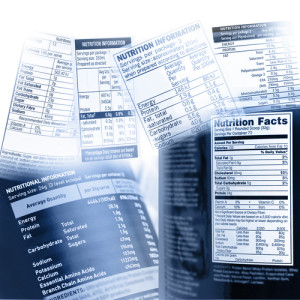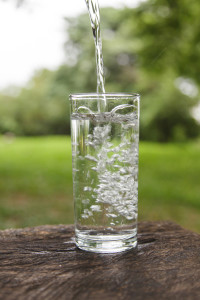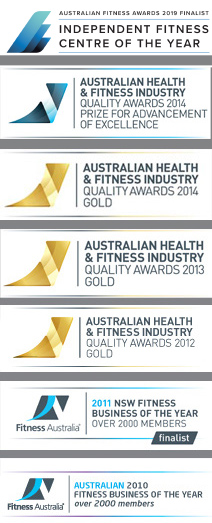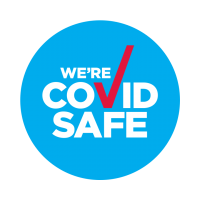Abs Are Made in the Kitchen
By Raquel Sbrana, Registered Professional Level 2 (Cert IV Fitness/Group Exercise/Boxing/Kickboxing)
As a Personal Trainer, I often get asked the question… what should I be eating? There are two main trends established from this. One, we are eating too many processed foods, and two, we aren’t drinking enough water, if any at all.
Eat real Carbs & ditch the processed stuff
It is often hard to work out what are real carbs versus those that are processed, simply because major corporations spend billions of dollars a year marketing their “healthy” foods to us. Foods that may seem to be good and wholesome can often be just the opposite. Things like cereals, pastas, breads as well as low fat option condiments and beverages are generally good examples of well hidden processed foods.
If you have been struggling with your weight loss, or have hit a plateau it’s time to have an in depth look at your diet and see which hidden processed foods you are consuming, and eliminate some or all of them.
FACT: The number one culprit for slowing metabolism is processed carbohydrates.
Pointers to get you started
1. If you do not recognise, or cannot pronounce an ingredient on a food label don’t buy it, or eat it.
 2. Avoid products that contain any of the following:
2. Avoid products that contain any of the following:
- Nitrates and nitrites (including sodium nitrite)
- Sulphites (including metabisulphite)
- Sulphur dioxide
- Benzoic acid (aka sodium benzoate)
- BHT (butylated hydroxytoluene)
- BHA (butylated hydroxyanisole)
- Colouring
- Coal tar
- Propylene glycol
- MSG (monosodium glutamate)
- Refined or bleached flour (i.e. whitened using chloride oxide)
3. Avoid partially hydrogenated or hydrogenated trans fats.
4. Avoid products containing sugar substitutes such as saccharine and aspartame.
5. Avoid products with a long shelf life – the better they do on the shelf the worse they are for your body.
6. Avoid products that have been enriched. They have been completely devitalised during processing.
7. Avoid food which has been genetically modified or engineered. Nearly all processed foods contain GMO’s.
8. Avoid foods with ingredients like natural flavouring or natural colouring.
9. Avoid products with added sugar, and keep an eye out for words ending with “ose” like glucose.
Carbohydrates are not the devil
Carbohydrates are the main source of fuel for your body, and therefore a necessary part of your diet. Whilst people eliminate carbs to drop weight quickly, this is not sustainable, and will likely result in weight gain as soon as carbs are re-introduced to the body.
Carbohydrates are made up of sugars which break down to provide either quick energy or slow-burning, sustained energy. “Simple” carbs (such as those found in most fruit) are quick energy sources, while “complex” carbs (like whole grains) provide longer lasting energy. In addition to providing physical energy, carbohydrates fuel the brain.
FACT: Our brains cannot use fat for energy – the brain requires carbohydrates to operate.
Fibre
Carbohydrate foods are rich sources of dietary fibre, which is required for digestive health, lowering cholesterol, and lowering sugar levels.
FACT: Ideally women need 22 – 28 grams of fibre daily. Men should aim to consume 28 – 34 grams of fibre each day.
Dietary fibre is not a miracle weight loss weapon, but it can help to fill you up without filling you out!
Because fibre loaded foods take longer to chew, our body feels satisfied sooner, and because fibre takes up a substantial amount of room in the stomach it keeps you filling full for longer.
Fibre is found in foods that are often naturally lower in fat and calories, and packed with vitamins and minerals.
FACT: The best sources for fibre can be found in foods like legumes, blackberries, raspberries, dried dates, broccoli, peas, brown rice and sweet potato.
How much water have you had today?
 Water is essential for everybody, but in weight loss it plays a very important role. To be able to burn calories the body cannot be dehydrated. A dehydrated body cannot burn calories efficiently. Think of burning calories like exhaust from your car – both create toxins. In the body, we need water to help flush these toxins out.
Water is essential for everybody, but in weight loss it plays a very important role. To be able to burn calories the body cannot be dehydrated. A dehydrated body cannot burn calories efficiently. Think of burning calories like exhaust from your car – both create toxins. In the body, we need water to help flush these toxins out.
Dehydration causes a reduction in blood volume. This creates a reduction in blood supply to your muscles, in turn causing you to feel tired. This will stop you from being able to give 100% to your workouts.
Water helps muscle tone by assisting muscles in their ability to contract, whilst giving lubrication to joints. Proper hydration can help reduce muscle soreness when exercising.
A healthy diet contains fibre (as mentioned early) but with fibre you need water to properly digest it. Failure to consume enough water can result in constipation with a high fibre diet.
FACT: Drinking 8 glasses of water per day will in normal circumstances stop the body becoming dehydrated. The feeling of dehydration is often mistaken for hunger pangs.
The advice in this article is very general. The best way to get information regarding diet and specific information for you is to see a professional Dietitian.











